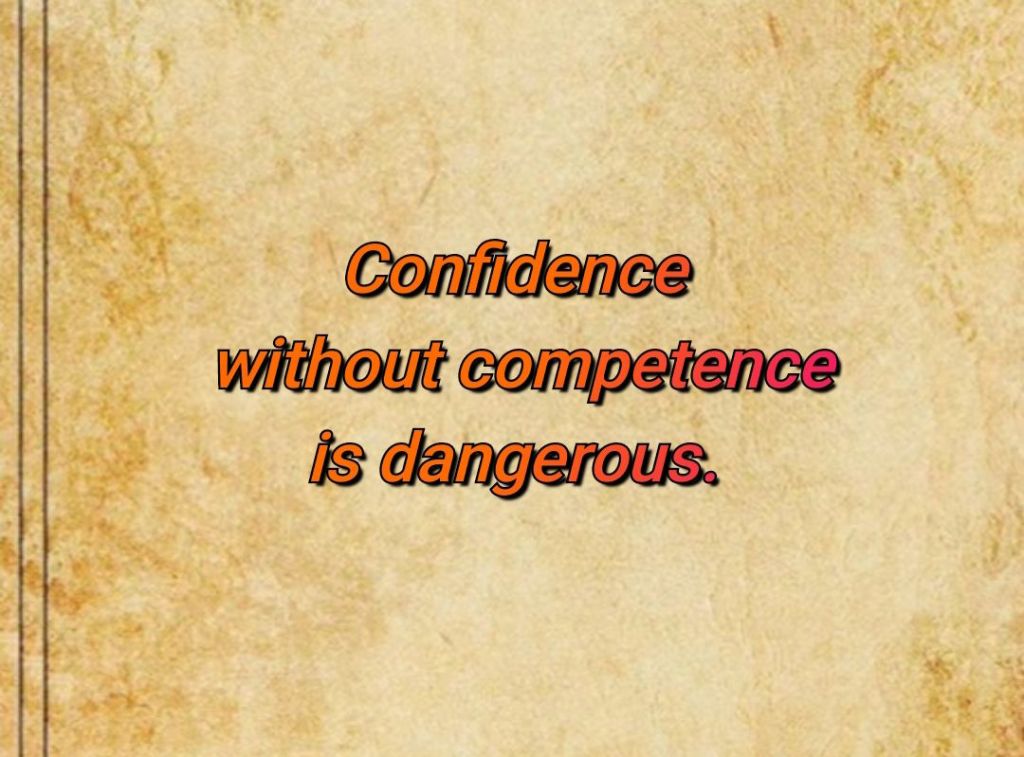In the small town of Crestville, nestled between rolling hills and dense forests, lived a man named Tom, who was known for his confidence. Tom had never doubted his abilities, whether it was fixing things around the house, giving advice, or understanding complex issues. He had a knack for convincing others of his competence, and many in the town looked up to him as a go-to person for solutions.
One summer, Crestville faced an unprecedented problem: a series of small earthquakes began to rattle the town. The tremors were minor, but they grew more frequent, and the townspeople grew increasingly worried. The local authorities decided to call a team of experts from the state university to assess the situation and recommend a course of action.
Tom, however, was unimpressed. He had always fancied himself knowledgeable about natural phenomena despite having no formal training in geology. When the experts arrived, Tom was quick to dismiss their presence, telling his neighbors, “These professors don’t know our town like we do. I’ve read plenty about earthquakes. We don’t need outsiders telling us what to do.”
The town held a meeting to discuss the experts’ findings. The scientists explained that the earthquakes were a sign of a potentially larger seismic event and recommended evacuating the town temporarily while they conducted further studies. Tom stood up and, with his usual confidence, argued against the evacuation. He presented his own interpretation of the data, suggesting that the earthquakes were nothing more than a passing phase caused by minor shifts in the local bedrock.

Many townspeople, trusting Tom’s judgment and not wanting to leave their homes and businesses, sided with him. The town council, swayed by the majority and the perceived authority in Tom’s demeanour, decided to reject the experts’ advice.
Over the next few days, Tom became a local hero. He organized community activities to keep spirits high and gave frequent updates, always assuring everyone that there was nothing to worry about. The scientists, seeing their warnings ignored, reluctantly left the town.
A week later, in the dead of night, a powerful earthquake struck Crestville. Buildings crumbled, roads cracked, and terrified residents fled into the streets. The town’s infrastructure, already weakened by the previous tremors, could not withstand the force. Lives were lost, and many were injured. Emergency services, overwhelmed and underprepared, struggled to cope with the scale of the disaster.
In the aftermath, the townspeople faced a harsh reality. Tom, who had seemed so sure of himself, had been catastrophically wrong. His overconfidence had led to the rejection of expert advice and, ultimately, to tragedy. Crestville would never be the same.
As the town began the long process of recovery, Tom’s reputation was shattered. He withdrew from public life, haunted by guilt, and the enormity of his mistakes. The townspeople, though scarred by their experience, learned a valuable lesson: true wisdom lies in recognizing the limits of one’s knowledge and deferring to those with the expertise to guide them through complex and dangerous situations.
Crestville’s story became a cautionary tale about the dangers of the Dunning-Kruger effect, reminding all who heard it that confidence without competence can lead to devastating consequences.
Leave a comment